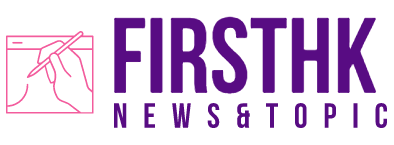
The unlimited resource model determines that the digital economy's future direction is the new knowledge economy. This is determined by the process of digital economy development, specifically the stages of Internet economy, digital economy, and knowledge economy.
At this stage of the Internet economy, data has become an important resource, and the fundamental issues at this point are: theminer s19 pro value evaluation of data resources, the interaction between data resources and other resources, and the similarities and differences in the methods for forming the value of data resources and other resources. Currently, knowledge as a method of data resource value is being gradually introduced into the research paradigm. Using the financial industry as an example, the way data resources interact with other resources is currently reflected in algorithmic association, organizational association, and causal hanging chain, forming graph analysis, complex network analysis, and interpretable tools. One of the most basic analysis ideas is to provide the magnitude of influence (i.e. weight) of various link positions, so that the path and factors of value formation can be identified and applied to assist market players in other scenarios in obtaining value.
The measurement of data-derived value, the production (value) mode of data resources, the standardization of economic value of data resources, data value influencing factors, optimization mode and paths, and so on are key issues at this stage of the digital economy. Knowledge enters the research paradigm as a dominant factor at this point, and the relevant basic questions are the manifestation of various characteristics of knowledge as a dominant factor. Taking the financial industry as an example, at this time, data resources have become the core production factors of financial institutions, and the value of financial institutions, i.e., all businesses with varying degrees of uncertainty reduction, rely on data resources, and data has even become the sole dependent resource. At this time, reducing uncertainty in different dimensions with data and thus reshaping the financial industry's valuegtx 1080 ti mining creation model is the main I It is also the unavoidable path for the financial industry's development at this point.
At the stage of knowledge economy, data becomes the representation of resources; at this time, digital space-time has been formed, and the related basic issues have thus become: data representation of resources, such as block chain is a representation; data representation of resources; analysis of the relationship between resources-data-value; value production mode and value path trend, and so on. At this point, knowledge is the direct object of research, and the representation of data as resources has evolved into higher-order knowledge, so the issues raised above are actually the exploration of economic values and ways of knowing, albeit in different space-time and space-time associations, such as digital space-time, social space-time, or value associations between digital space-time and social space-time. Future economic models will be influenced by these fundamental issues and will gradually evolve into corresponding production models. Using the financial industry as an example, the future financial industry will operate in both social space-time and digital space-time, and their value connections, as well as all of the above issues.
It can be seen that the knowledge economy is an unavoidable process following the development of the digital economy to a certain stage, but this stage is distinct from the knowledge economy traditionally defined by industries. The traditional knowledge economy is a knowledge-based industry as the research object, and economicgtx 1080 mining growth is directly dependent on the production, dissemination, and use of knowledge and information, with high-tech industry serving as the primary industry pillar and intellectual resources serving as the primary resource. After data becomes a factor, the new "knowledge economy" reflects the central role of knowledge.




.jpg?x-oss-process=image/resize,p_100/format,webp)






